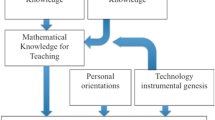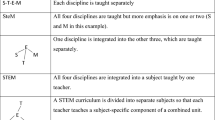Abstract
Historically, we can find cross-curricular activities (“life unit study”) after World War II in Japan. When we consider the arguments of “life unit study”, the following three approaches will serve as reference: the approach orientated to the independent aspect, the approach orientated to the societal aspect, the approach orientated to the scientific aspect. By reflecting the critique of “life unit study”, it is suggested that a balanced approach should be carried out. In other words, teachers had better focus on one aspect according to the aim of classroom teaching, and balance three approaches on the whole.
Kurzreferat
Historisch gesehen gibt es seit dem 2. Weltkrieg fächerübergreifende Aktivitäten in Japan. Argumente für eine “Studieneinheit Leben” werden im Hinblick auf drei—unabhängigkeits-, gesellschafts- bzw. wissenschaftsorientierte —Zugänge betrachtet. Ein Nachdenken über Kritik zur “Studieneinheit Leben” legt eine ausgewogene Unterrichtsmethode nahe. Das heißt, der Lehrer solle sich nur auf einen Aspekt entsprechend seines Unterrichtsziels konzentrieren und dabei die drei Zugänge in ausgewogener Weise berücksichtigen.
Similar content being viewed by others
References
Fukumori, N. (1996): Transition from Unit Study into System Study in Japanese Mathematics Education.—In Philosophies of Mathematics Education in the Twentieth Century. Tokyo: Japan Society of Mathematical Education, p. 155–167 (in Japanese)
Hirabayashi, K. (1948): A New Aspect of Mathematics Education by Unit Study.—In: Journal of the Mathematical Educational Society of Japan. Vol. 6 (3), p. 1–7 (in Japanese)
Ikeda, T. (1997): A Case Study of Instruction and Assessment in Mathematical Modelling—“Delivering Problem”.—In: S.K. Houston; W. Blum; I. Huntley; N.T. Neil (Eds.), Teaching & Learning Mathematical Modelling. Albion Publishing Limited. 1997, p. 51–62.
Inagaki, N. (1994): Learning of Life Unit and Systematism Trends in Mathematics Education. Practical Lesson of Mathematics Education in Junior High School.—In: Nichibun Vol.17, p. 82–96 (in Japanese).
Kawaguchi, T. (1992): Mathematics 3 in Junior High School.—Tokyo: Gakko Tosyo, p. 157 (in Japanese).
Matsumiya, T.; Yanagimoto, T. (Eds.) (1995): Practice and Development of Composite Real Mathematics Learning.—Tokyo: Meizi Tosyo (in Japanese)
Miura, T. (1949): Mathematical Education in Core Curriculum. Mathematical Education.—In: Journal of the Mathematical Educational Society of Japan Vol. 7(4) p. 21–22 (in Japanese)
Okuno, T. (1953): Criticism on the Unit Learning. Mathematical Education.—In: Journal of the Mathematical Educational Society of Japan Vol. 11(3), p. 4–6 (in Japanese)
Shimada, S. et al. (1949): On Unit Study. Mathematical Education.—In: Journal of the Mathematical Educational Society of Japan Vol. 7(1), p. 20–24 (in Japanese)
Suemitsu, Y. (1949): Thinking Process in Mathematical Unit Study. Mathematical Education.—In: Journal of the Mathematical Educational Society of Japan Vol. 7(4), p. 1–11 (in Japanese)
Syoda, M. (1997): Revision of Curriculum Standard and Research in Mathematics Education.—In: Proceedings of the 30th Research Meeting of Japan Society of Mathematical Education, p. 2 (in Japanese)
Wada, Y. (1951): An Aspect of Mathematical Education from the Stand Point of Teaching Method. Mathematical Education.—In: Journal of the Mathematical Educational Society of Japan Vol. 9(5/6), p. 1–6 (in Japanese)
Yamazaki, K. (1992): Election of Representatives.—In: Y. Hashimoto (Ed.), Study on Development and Systematization of Open-ended Problems in Middle School. A Report of the Results of Research, p. 118–125 (in Japanese)




